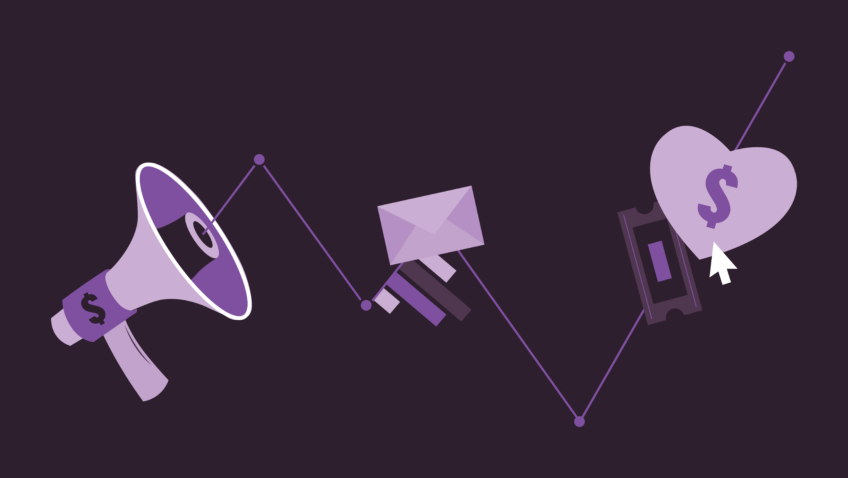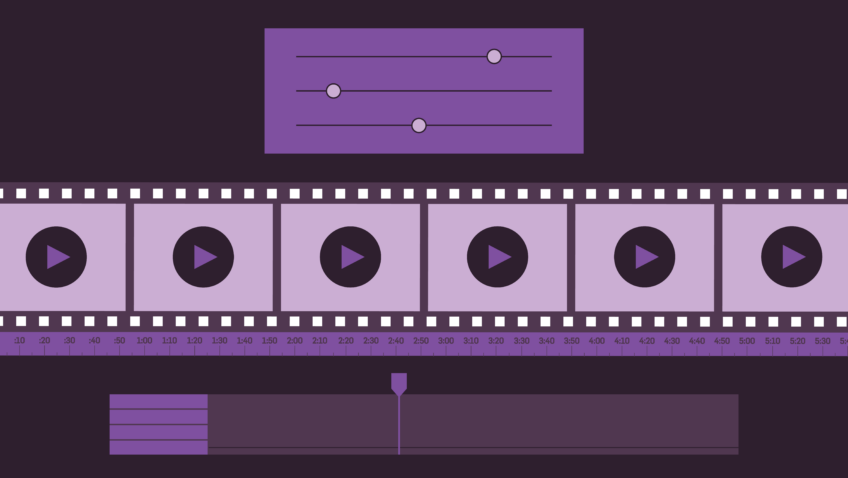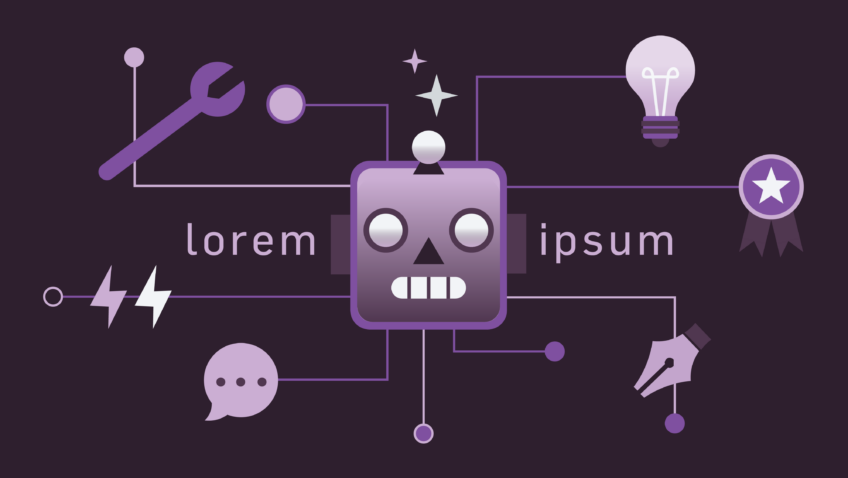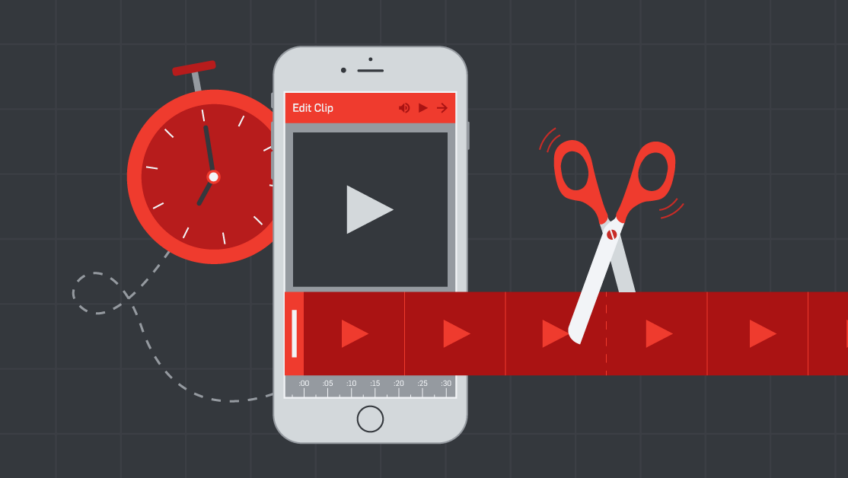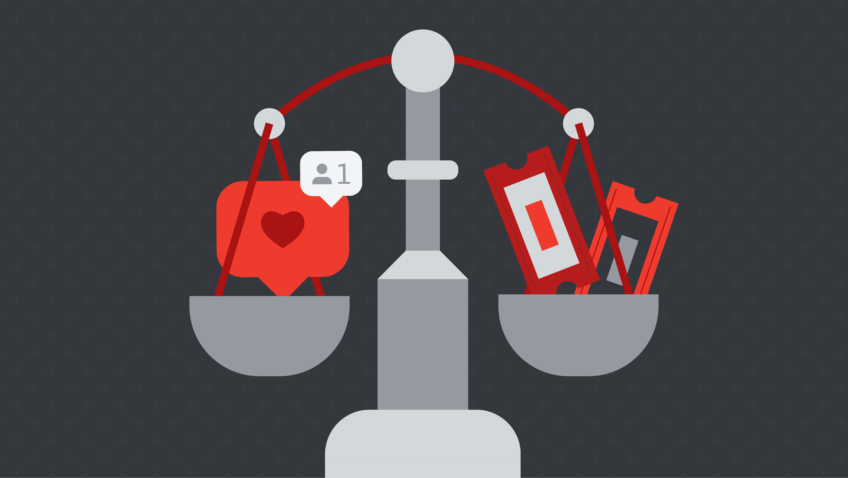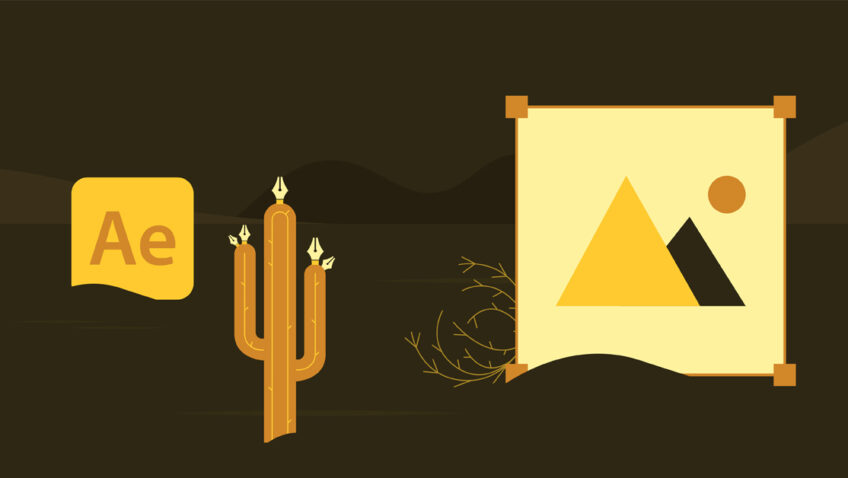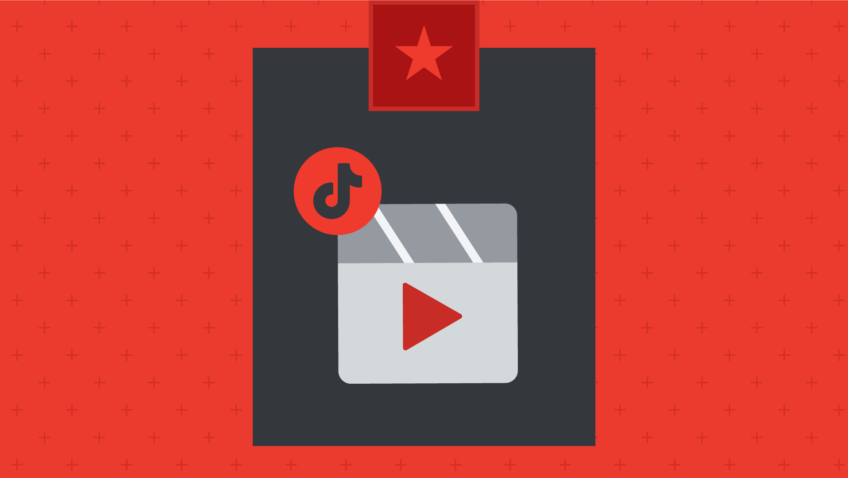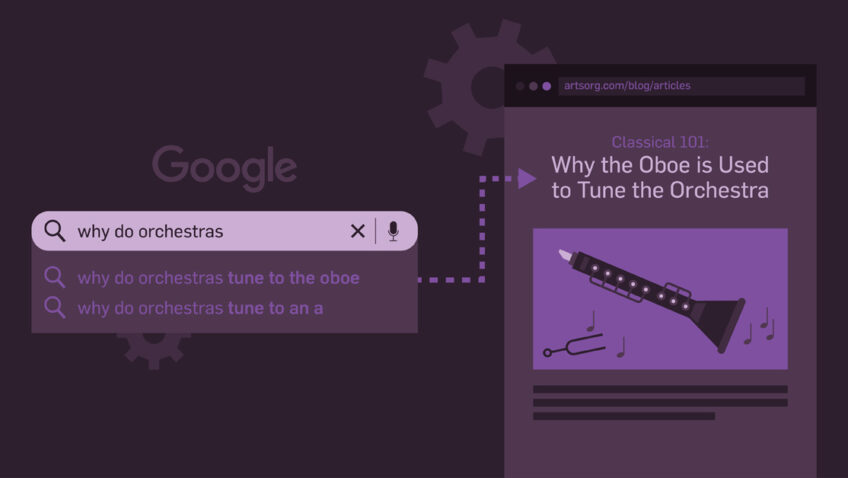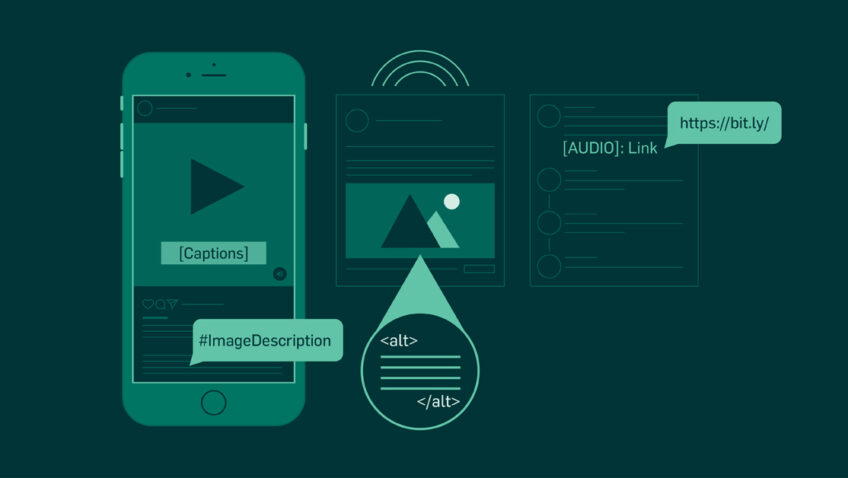Use Your Words: Inspiration for Stellar Digital Copy
 Language can change someone’s entire perspective in an instant. It can pique interest, spark passion, and inspire thought. I’ve realized what a gift it is to both love words and have the opportunity to directly engage with people immediately.
Language can change someone’s entire perspective in an instant. It can pique interest, spark passion, and inspire thought. I’ve realized what a gift it is to both love words and have the opportunity to directly engage with people immediately.
As arts marketers, we have a unique opportunity to be the voice of art. Someone has already taken the time to craft the basis for nearly everything we have to say. There are certainly several reasons that I work in the arts—one of the most important reasons is I’m passionate about the art form I market – jazz.
Jazz isn’t always pretty and it isn’t perfect. The artists who play jazz do not always look like models while they do it (although some of them do!). It isn’t considered a visual art form, so to speak. So when the music can’t speak for itself, words become even more important.
You can market and sell but you still need to make people feel something before they’ve even sat down in your theater. It’s about getting someone to sit up, pay attention, and react to whatever it is you’re putting in front of them. Your fans want to feel like they’re part of an awesome community, not just getting the same old song and dance.
For example, we’ve had the legendary Cuban reedman Paquito D’Rivera perform in our theaters so many times over the years. Every time he’s performed, we said just that: “the legendary Cuban reedman!”
While we all know that being repetitive isn’t always a bad thing in marketing, we had to come up with something else to say about him. We looked deeper into Paquito’s story and discovered he’s won 13 Grammy awards—it’s an amazing accomplishment!
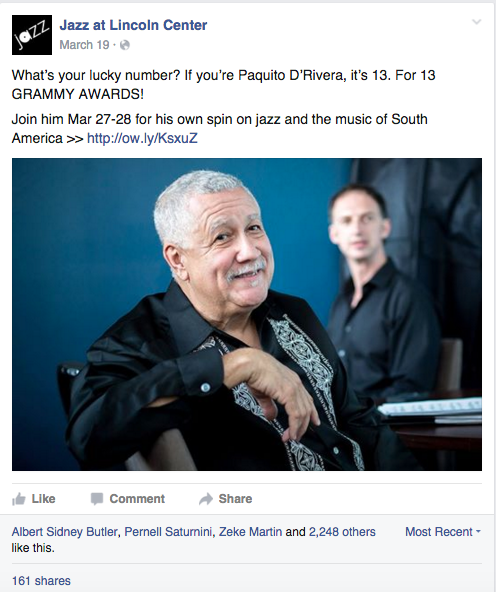
There’s always an opportunity to generate new excitement around your programming. You can even spice up holiday-related content! We can all say “Happy Valentine’s Day” but that isn’t engaging or fun. Valentine’s Day has a lot of legs (as you can see below).
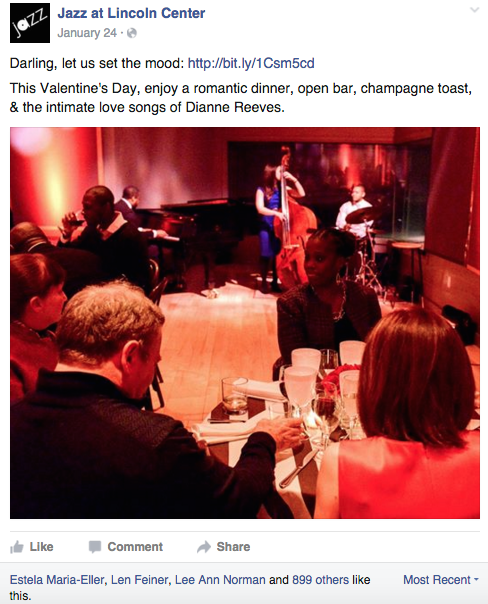
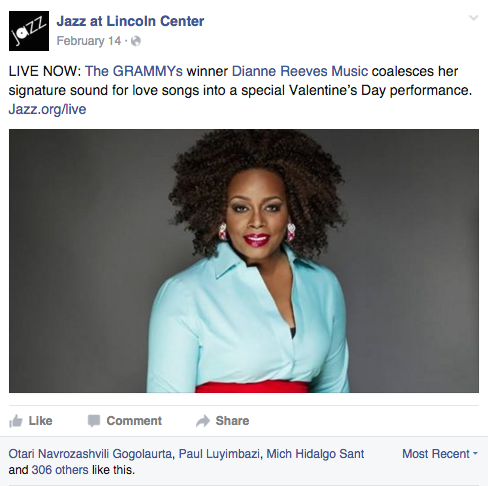
In a great cross-departmental collaboration led by our Audience Development department, we worked on a year-end giving campaign (which I’m sure many of you have seen my colleague Aaron Bisman present on). The tagline really drove the point home: “Wherever you are, you’ll always have a seat in our house.” You can check out the video here.
Then there are times when you learn from an experience and make it better the next time around. Take for example our 2013-14 concert season. During the planning process, an amazing ensemble from Pakistan, the Sachal Jazz Ensemble, came to the attention of our Managing & Artistic Director, Wynton Marsalis. He discovered the group via a viral YouTube video of the group’s version of Dave Brubeck’s “Take 5.” Wynton decided to bring the ensemble to New York to perform with the Jazz at Lincoln Center Orchestra.
While the video was fantastic, images were limited and no one had any idea who or what the Sachal Jazz Ensemble was. We struggled to name the show and reach the appropriate audience.
In retrospect, this was a missed opportunity to utilize more powerful language. We instead turned to graphics, the YouTube video, and fantastic grassroots marketing – options that were powerful in a different way. The graphics looked great, but what were we thinking with this headline?!
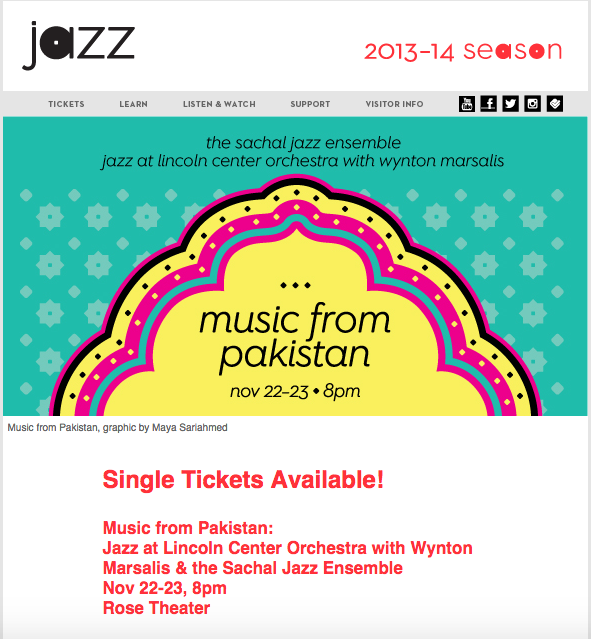
I think the most important thing about missed opportunities is recognizing when they pass you by and knowing how you can do better next time. After all, Coleman Hawkins, the jazz saxophonist, once said, “If you don’t make mistakes, you aren’t really trying.”
Language truly is its own art form—so here’s what I challenge you to do:
- Recognize how you feel when you read things. Take a second in your thumb scrolling or during your morning commute to notice whether or not something speaks to you. Is it a good feeling? Are you annoyed? Does the message remind you of something else?
- Ask other people what they see or hear. Observe the differences between your own perception and someone else’s.
- Find inspiration everywhere. There are the obvious sources to listen to. – the artists you work with, the programmers – but there are plenty others you may not have thought of – you never know where you may find your own inspiration.
- Experience what you do. Take it all in—your own art and the art that you work with fresh eyes. Again, notice how you feel.
- Learn all you can. There is always a new angle.
I’m excited to share what helps me get through my creative roadblocks at Boot Camp and how we workshop copy for digital platforms at Jazz at Lincoln Center.
Are you going to Digital Marketing Boot Camp for the Arts October 19-20 in NYC? Check out Sara’s Boot Camp session from 2015.

